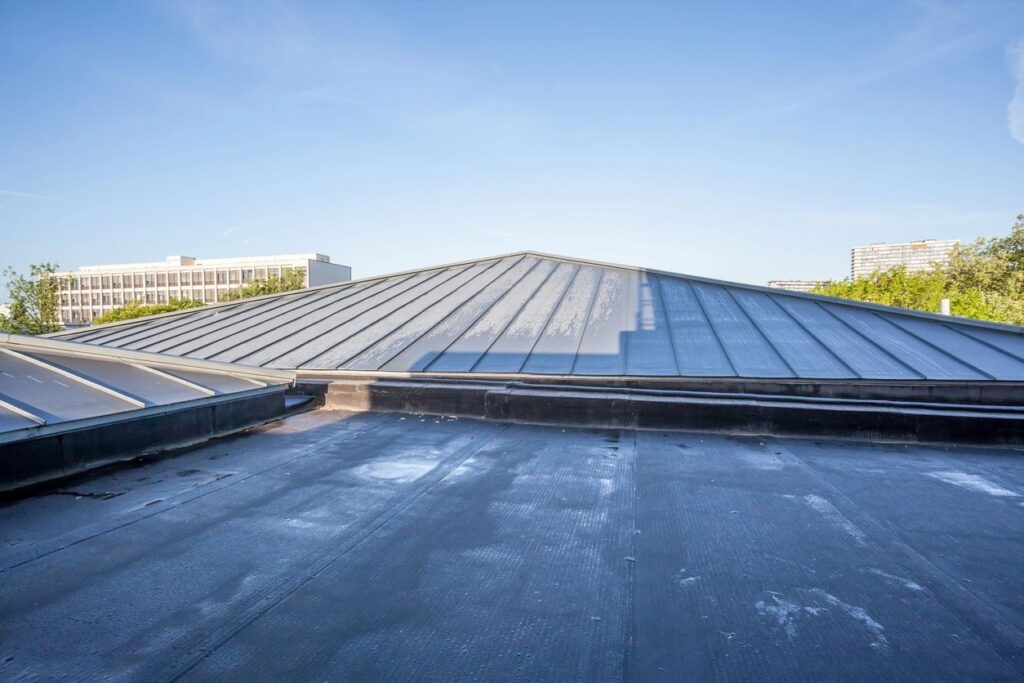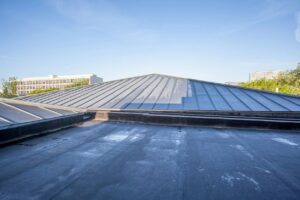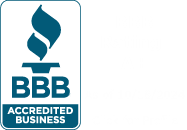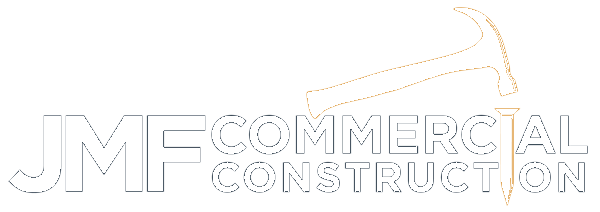What Are Commercial Flat Roofs?
Home » What Are Commercial Flat Roofs?

The most common type of roof for commercial buildings are flat roofs. Flat roofs are not like typical home roofs with a high slope and peak top. They are flat or have a low slope, which is where it gets its name. If you have not noticed flat roofs before on commercial businesses look the next time you are at a retail store, office, storage facility, hotel, and other commercial businesses. Many business leaders in the commercial and industrial sector favor flat roofs for their business because it is ideal and the standard.
Different Types of Flat Roofs
Every flat roof is created different in shape, size, and even material used to build it. The materials of the roof determine the type of flat roof. Here is a list of the most common flat roofs used the in the United States by commercial and industrial businesses:
- Bur or Build Up Roofs
- Modified Bitumen Roofing
- Thermoplastic Membranes PVC or TPO
- Spray Polyurethane Foam Roof
- EPDM Rubber Roof
- Metal
- Asphalt
- Shingles
If you are on the fence on transition their current roof to a flat roof for their commercial or industrial business, then it is important to consider the advantages and disadvantages of flat roofs.
Commercial Flat Roof Advantages
- Flat roofs are typically easier and quicker for a commercial roofer to install. As a result, this minimizes the impact of construction on your business and can potentially save you on cost.
- These roofs have an optimized space for commercial and industrial businesses. With the design of flat roofs, it creates the availability of a large flat surface ready to be used by the business. Which can be used for storage such as equipment and materials. As well as the installation of amenities such as pools and gardens. In addition, roofs provide a great space for ventilation, solar panels, and satellites.
- The flat or low slope surface of the roof requires less material compared to high or steep sloped roofs. As a result, it become more cost effective due to less square footage needed to be covered.
- The appearance of these roofs is more appealing for customers and employees. The installation of air conditioners, satellites, and solar panels are easier and quicker to install. In addition, these items are less noticeable from the curb.
- General maintenance and repairs are easier and quickly done. Since the repairmen or roofing contractor can easily access and walk on the rooftop. Plus, the rooftop is much safer to work on and access.
- Owners have a variety of options from the different types of roofs and colors that commercial roofing contractors can provide.
- Efficient drainage systems can be installed. With the excess space available, commercial roofers can install an efficient and complex water removal system.
- These roofs are long lasting and are durable.
Commercial Flat Roof Disadvantages
- If an effective draining system is not installed, then drainage can be a huge issue for flat roofs. The slope will work against the roof in properly draining. In addition, if not addressed water will puddle and stay on the roof, which can weaken and even break the building material. Which may result in leaks. Owners will have to hire a commercial roofer to remove water, which can be time consuming and costly.
- Due to the roofs high surface area makes it less stable then traditional high sloped roofs. In addition, owners must allocate weight on the interior accordingly to not damage the roof.
- Flat roofs make commercial and industrial businesses sensitive to temperatures. This is because of the lack of insulation flat roofs provide. The alternative would be to make the roof thicker.
Summary of Commercial Flat Roofs
Flat roofs are primarily used for commercial and industrial businesses. Owners have the option of selecting different types of flat roofs depending on their taste and demands. The slope of the roof brings many advantages to business such as curb appeal, optimize use of space, cost, and time efficient, and more. However, owners must be mindful of the disadvantages of with flat roofs and accommodate their resources accordingly to limit those disadvantages. Ultimately, commercial, and industrial business owners should use their best judgement in choosing what type of roof they would like for their business. They should always consult with a general contractor or commercial roofer for more information.
Contact JMF Commercial Construction
JMF Commercial Construction is an experienced licensed contractor serving commercial and light industrial businesses, and HOA property management. We provide convenient and quality services to the Los Angeles & Orange County businesses. Check out our commercial roofing service page today.
To start your next commercial construction project today! Contact JMF Commercial Construction for an Estimate.
Email us at info@jmfcommercialconstruction.com or call us at (562)572-8354.
Partner With JMF Commercial Construction
JMF Commercial Construction is an experienced licensed contractor serving commercial and light industrial businesses, and HOA Property Management. We provide convenient and quality services to the Los Angeles & Orange County businesses.
To start your next commercial construction project today! Contact JMF Commercial Construction for an Estimate.
Email us at info@jmfcommercialconstruction.com or call us at (562)572-8354.
Most Popular:
Have A Question?
Relevant Blog Posts

What Are Commercial Flat Roofs?
The most common type of roof for commercial buildings are flat roofs. Flat roofs are not like typical home roofs with a high slope and

What Are Commercial Flat Roofs?
The most common type of roof for commercial buildings are flat roofs. Flat roofs are not like typical home roofs with a high slope and



